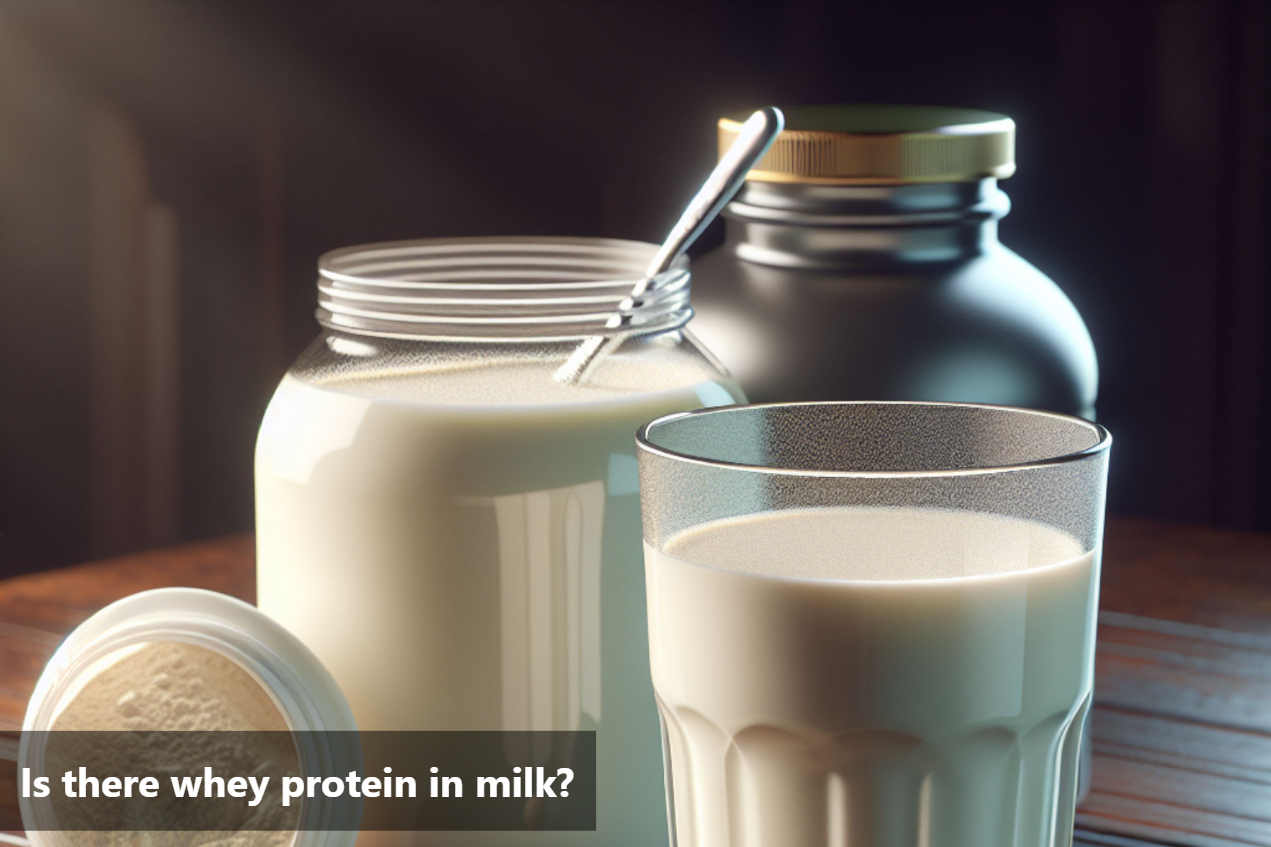
Is there whey protein in milk?
When we think of protein in milk, one of the first types that comes to mind is whey protein. Whey protein is a high-quality protein that is easily digestible and contains all essential amino acids required by the body. It is often highlighted in the fitness and nutrition world for its muscle-building benefits and quick absorption rate.
In addition to whey protein, milk contains casein protein, which is digested more slowly than whey, providing a sustained release of amino acids. This combination of whey and casein makes milk a well-rounded source of protein for both immediate and prolonged muscle recovery.
Understanding the protein composition of milk is essential for individuals looking to optimize their nutrition and fitness goals. Whether you are an athlete seeking post-workout recovery or simply aiming to increase your protein intake, milk can be a valuable addition to your diet due to its rich protein content, including the renowned whey protein.

Nutrient Content in Milk
One cup (249 grams) of whole cow’s milk with 3.25% fat provides:
Calories |
152 |
Water |
88% |
Protein |
8.14 grams |
Carbs |
12 grams |
Sugar |
12 grams |
Fiber |
0 grams |
Fat |
8 grams |
Is There Whey Protein in Milk?
Whey protein is one of the two main proteins found in milk, with the other being casein. The content of whey protein in cow's milk is approximately 20% of the total protein content. Here's a breakdown:
Cow's milk typically contains about 3.2% protein by weight.
Out of this protein content, whey protein makes up around 20%.
So, in cow's milk, whey protein content is roughly 0.64% (3.2% of 20%).
Factors affecting Whey content in Milk
Breed of the Cow: Different breeds of cows have varying protein compositions in their milk. For instance, Jersey cows are known to produce milk with a higher protein content compared to Holstein cows.
Stage of Lactation: The stage of lactation can influence the protein composition of milk. Early lactation milk generally has a higher protein content, including whey protein, compared to late lactation milk.
Diet and Nutrition: The cow's diet plays a crucial role in determining the protein content of milk. A balanced diet rich in protein can increase the overall protein content, including whey protein, in the milk. Additionally, the type of feed, quality of pasture, and any supplements can impact protein levels.
Health and Age of the Cow: A healthy cow in its prime lactation period tends to produce milk with a better protein composition. Older cows or those with health issues might produce milk with a different protein profile.
Milking Practices: Proper milking practices, including hygiene, frequency of milking, and milking equipment, can influence the quality and composition of milk. Poor milking practices can introduce contaminants and affect milk composition.
Seasonal Variations: Seasonal changes can impact the nutritional content of the cow's diet, which in turn can affect the milk's protein composition. For example, cows grazing on fresh spring pasture might produce milk with different protein levels compared to those fed winter feed.
Genetics: Genetic factors play a role in determining the protein composition of milk. Selective breeding can influence the milk's protein content and profile over generations.
Processing and Handling: The way milk is processed and handled after milking can also affect the whey protein content. For example, certain processing methods used in cheese-making can remove a significant portion of whey proteins.

Milk and Its Whey Protein Content
Whey protein, known for its rapid absorption and muscle-building properties, emerges as a key player in the realm of protein nutrition.
It is evident that milk stands as a versatile source of high-quality protein, contributing to overall health and wellness. Whether you are looking to support your workout routine or enhance your daily nutrition, the presence of whey protein in milk underscores its importance in a balanced diet.
With this newfound knowledge on the protein-rich composition of milk, may you appreciate and leverage the benefits that this natural source of nourishment has to offer. Remember, each glass of milk not only quenches your thirst but also provides a dose of essential protein, including the valuable whey protein.
FAQs
-
Is milk a good source of whey protein?
Yes, milk contains two primary types of protein: casein and whey. Whey protein is a high-quality protein found in milk.
-
How much whey protein is in milk?
Approximately 20% of the protein in milk is whey protein.
-
Does whey protein provide any health benefits?
Whey protein is known for its high biological value and essential amino acids that support muscle growth and repair.
-
Can lactose-intolerant individuals consume whey protein from milk?
Some people with lactose intolerance may tolerate whey protein isolate, which has minimal lactose content compared to other forms.
-
Are there any differences between whey protein from milk and standalone whey protein supplements?
Whey protein supplements are typically more concentrated forms of whey protein compared to the amount naturally found in milk.
This Blog post is an initiative by Lo! Foods, to provide accurate and Nutritionist / Doctor approved information related to Health. Lo! Foods is India's leading brand for Everyday Functional Foods. Foods designed for specific Health conditions or Needs. Lo! Foods also runs India's largest range of Low Carb Healthy Cloud Kitchens, under the brand names of Lo!, ProteinChef, ATH (All Things Healthy) and DiabeSmart.















Leave a comment
Your email address will not be published.